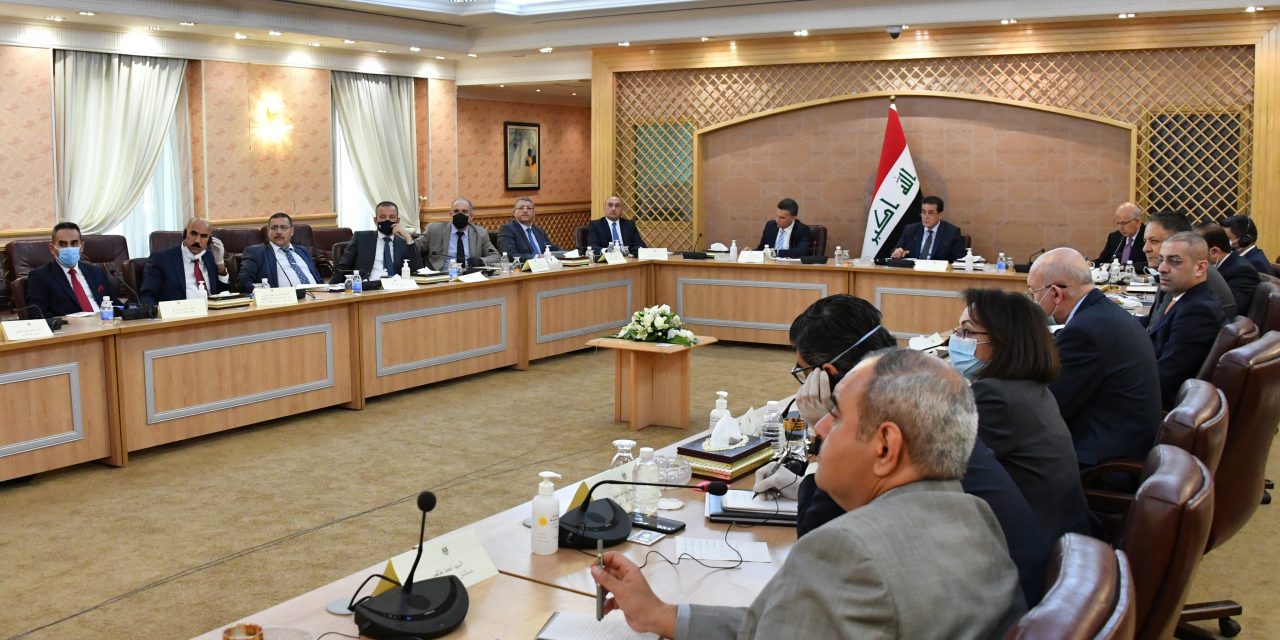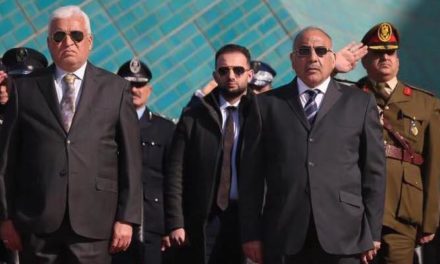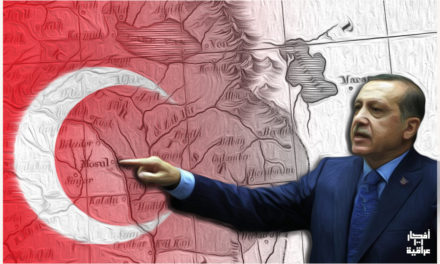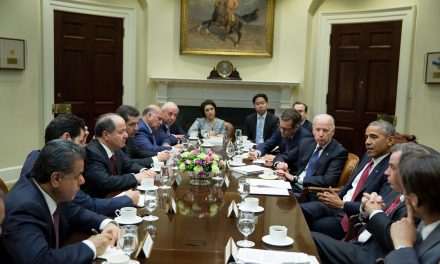The talks are intended to cover seven core elements, including education, health, culture, energy, the economy, security, and politics; and according to observers, Baghdad and Washington will be holding lengthy consultations on a range of issues within the context of these seven topics. There is little doubt that the discussions will revolve mainly around political and security issues; since the primary motivation behind these talks will be to reappraise and to reinforce bilateral relations in the wake of the widening gap between Baghdad and Washington, especially following the double assassination by the U.S. on Iraqi soil of the deputy head of the Iraq’s Public Mobilization Forces (PMF), Abu Mahdi Al-Muhandis, and the commander of the Iranian Quds Force, General Qassim Soleimani, on January 3, 2020. This decisively bloody event followed an escalation in the direct hostilities between the two sides, which began on December 26, 2019, with the attack by the Hezbollah Brigades in Iraq on the American “K1” military compound in the governorate of Kirkuk, killing an American contractor; and Washington’s revenge bombing of an Iraqi military compound in the border town of Qaim, killing about 40 of its personnel, culminating with demonstrations by elements of the PMF and their supporters on December 31, 2019 outside the compound of the U.S. Embassy in Baghdad.
The significance of these talks may be evaluated by looking at five of the seven elements, namely: the first element concerns the extent of the changes that will take place in political relations between Iraq and the U.S., which is inextricably linked with providing Baghdad with the opportunity of revealing its future vision of establishing near-balanced relations with both Tehran and Washington. The idea of finding such a balance was initially mooted during the era of former Prime Minister Adil Abd Al-Mahdi, at a time when the heightened tensions between Iran and the U.S. reached dangerous levels, which in turn had completely overshadowed Iraq’s security.
Within the ambit of the first element will be whether or not these strategic talks will, in one form or another, benefit the next agreement between Iran and the U.S., as the consequences of America’s indulgences or intransigence during the current round of talks with Baghdad will provide a foretaste of Washington’s future stance towards the Tehran talks. All the indicators point to the existence of such a link, such as the U.S. paying off Iraq’s 400 million dollar debt for electricity imports from Iran. Some insiders also believe that there is a link between the payment of the debts owed by Iraq to Iran and the recent release of a number of Iranian-American prisoners from Iran’s prisons.
The second element concerns the negotiations over security matters, which include the withdrawal of U.S. and other foreign troops from Iraq. In January of this year, Iraq’s Parliament passed a resolution comprising four articles which provided for the rescinding of the request for military support from Coalition forces; an end to the presence of all foreign troops in the country; an end to the infringements of Iraq’s territorial land and airspace by foreign forces; and the filing of a formal complaint against Washington with the United Nations for violations of Iraq’s national sovereignty. And this particular avenue of the talks came about as one of the initial results of the bilateral talks, subsequently encompassed in a joint Iraqi-U.S. statement, and represented by the gradual withdrawal of the U.S. military, alongside a close scrutiny of the status of the remaining forces in Iraqi territory. In the first statement to come out from the talks, the U.S. proclaimed that it has no desire to maintain a permanent military presence in Iraq. In the final analysis, whether the results of the talks indicate the partial or complete withdrawal of U.S. forces, the issue will be eventually resolved according to a clear timetable. From the viewpoint of outside observers, the role of the remaining U.S. forces and all the other kinds of foreign presence will be limited to logistical support of the Iraqi forces.
The second segment of the security element in the agenda being pursued by the U.S. is aimed at weakening the grip of the PMF in Iraq. From the standpoint of the PMF factions represented by the Fatah coalition, they want to see the complete withdrawal of all U.S. forces take place before 2022. However, Prime Minister Mustafa Al-Kadhimi’s government does not agree to a complete withdrawal of all foreign forces, because such a step could weaken or compromise the war against Da’ish, as well as strengthening the influence of Iran and its allies. It also appears that Kadhimi is fully aware that creating an uneven or unequal relationship with the U.S. will be tantamount to inciting repeated violations of Iraq’s national sovereignty and ultimately will lead to the weakening of his government.
The third element concerns Iraq’s reliance on Iran for its energy supplies, something which has often prompted the United States to call on Iraq to keep relations with Iran at arm’s length and instead to cooperate with U.S. and GCC companies for the import of the gas needed to run the country’s power stations and to stabilise the energy situation in the country. Most recently, the United States agreed to extend Iraq’s exemption from the sanctions against the import of gas and electricity from Iran for a further period of 120 days. The waiver from sanctions, which also covers certain other goods, allowed Iraq to continue importing about 1,400 megawatts of electricity and 28 million cubic meters (988 million cubic feet) of gas from Iran.
Over and above the political dimensions which add complications to this issue, the cost of purchasing electricity from Iran during the past few years runs into billions of dollars. The cost of the latest energy agreement with Iran, which runs until 2021, is $800 million.
The fourth element of the talks examines the worsening economic situation, the financial crisis and mounting debt, and it appears that Iraq is heading for yet another handout from the U.S. Since late 2019, the COVID19 epidemic began to affect the demand directly and negatively for energy in general and crude oil in particular, and of course oil exports are the most important source of income for the Iraq’s treasury. At present, this means that Iraq earns $2.1 billion per month, whereas it needs at least $4.5 billion per month solely for the purpose of paying the salaries of state employees and state pensions. Political expectations revolve around attempts by the U.S to exploit Iraq’s financial crisis by offering loans to Iraq during the bilateral talks, undoubted.ly with some stringent fine print.
The fifth element focuses on the country’s heath sector. After 40 years of wars and sanctions, Iraq suffers from severe shortages of hospitals, whilst existing facilities suffer from unprecedented neglect. The situation has been further exacerbated by the rapid spread of COVID-19, as the healthcare system in Iraq does not have sufficient operational and financial capacity to contain and control the epidemic.
At the end of the day, the real question that remains to be answered is will all seven elements mentioned in the statement be implemented? Mustfa Al-Kadhimi will likely consult on the implementation of parts of this agenda. However, it should be noted that Kadhimi does not enjoy the full support of Parliament, and therefore will have limited room to manoeuvre. Will the current government put all its eggs in the American basket and cooperate with it to reduce Iran’s influence? Or will it attempt to find some compromise, which accommodates both the interests of Iran and U.S., and somehow bring an end to the spiral of crises which continue to engulf Iraq?











